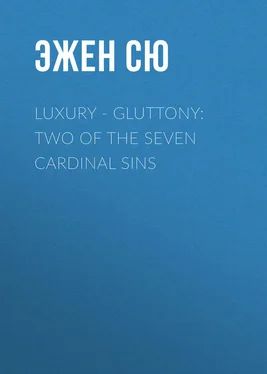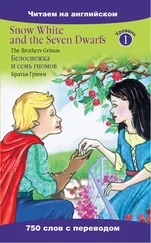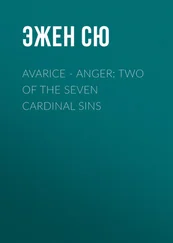Эжен Сю - Luxury - Gluttony - Two of the Seven Cardinal Sins
Здесь есть возможность читать онлайн «Эжен Сю - Luxury - Gluttony - Two of the Seven Cardinal Sins» — ознакомительный отрывок электронной книги совершенно бесплатно, а после прочтения отрывка купить полную версию. В некоторых случаях можно слушать аудио, скачать через торрент в формате fb2 и присутствует краткое содержание. Жанр: literature_19, foreign_antique, foreign_prose, на английском языке. Описание произведения, (предисловие) а так же отзывы посетителей доступны на портале библиотеки ЛибКат.
- Название:Luxury - Gluttony: Two of the Seven Cardinal Sins
- Автор:
- Жанр:
- Год:неизвестен
- ISBN:нет данных
- Рейтинг книги:4 / 5. Голосов: 1
-
Избранное:Добавить в избранное
- Отзывы:
-
Ваша оценка:
- 80
- 1
- 2
- 3
- 4
- 5
Luxury - Gluttony: Two of the Seven Cardinal Sins: краткое содержание, описание и аннотация
Предлагаем к чтению аннотацию, описание, краткое содержание или предисловие (зависит от того, что написал сам автор книги «Luxury - Gluttony: Two of the Seven Cardinal Sins»). Если вы не нашли необходимую информацию о книге — напишите в комментариях, мы постараемся отыскать её.
Luxury - Gluttony: Two of the Seven Cardinal Sins — читать онлайн ознакомительный отрывок
Ниже представлен текст книги, разбитый по страницам. Система сохранения места последней прочитанной страницы, позволяет с удобством читать онлайн бесплатно книгу «Luxury - Gluttony: Two of the Seven Cardinal Sins», без необходимости каждый раз заново искать на чём Вы остановились. Поставьте закладку, и сможете в любой момент перейти на страницу, на которой закончили чтение.
Интервал:
Закладка:
"But, monsieur, it is an unworthy action that you ask me to do, think of it."
At this moment was heard the sweet ringing laughter of Sophie, who was approaching the parlour.
"Ah, monsieur," said her husband, "not a word of this before my wife, because it may not be your final resolve. I hope that — "
Charles Dutertre could not finish, because Sophie had entered the parlour.
The unhappy man could only make a supplicating gesture to Pascal, who responded to it by a sign of sympathetic intelligence.
CHAPTER VIII
When Sophie Dutertre entered the parlour, where were seated her husband and M. Pascal, the gracious countenance of the young woman, more flushed than usual, the light throbbing of her bosom, and her moist eyes, all testified to a recent fit of hilarious laughter.
"Ah, ah, Madame Dutertre!" said M. Pascal, cheerfully. "I heard you distinctly; you were laughing like a lunatic."
Then, turning to Dutertre, who was trying to hide his intense distress and to hold on to a last hope, he said:
"How gay happiness makes these young women! Nothing like the sight of them puts joy in the heart, does it, my brave Dutertre?"
"I was laughing in spite of myself, I assure you, my dear M. Pascal," replied Sophie.
"In spite of yourself?" answered our hero. "Why, does some sorrow — "
"Sorrow? Oh, no, thank God! But I was more disposed to tenderness than gaiety. This dear Antonine, if you only knew her, Charles," added the young woman, with sweet emotion, addressing her husband. "I cannot tell you how she has moved me, what a pure, touching confession she has made to me, for the heart of the poor child was too full, and she could not go away without telling me all."
And a tear of sympathy moistened Sophie's beautiful eyes.
At the name of Antonine, M. Pascal, notwithstanding his great control over himself, started. His thoughts concerning this young girl, for a moment postponed, returned more ardent, more persistent than ever, and as Sophie was wiping her eyes he threw upon her a penetrating glance, trying to divine what he might hope from her, in reference to the plan he meditated.
Sophie soon spoke, addressing her husband:
"But, Charles, — I will relate it all to you, after awhile, — while I was absorbed in thinking of my interview with Antonine, my little Madeleine came to me, and said in her baby language such ridiculous things that I could not keep from bursting into laughter. But, pardon me, M. Pascal, your heart will understand and excuse, I know, all a mother's weakness."
"Do you say that to me," replied Pascal, cordially, "a bachelor, — you say it to me, a good old fellow?"
"That is true," added Sophie, affectionately, "but we love you so much here, you see, that we think you are right to call yourself a good old fellow. Ask Charles if he will contradict my words."
Dutertre replied with a constrained smile, and he had the strength and the courage to restrain his feelings before his wife to such a degree that she, occupied with M. Pascal, had not the least suspicion of her husband's anxiety. So, going to the table and taking up the purse she had embroidered, she presented it to M. Pascal, and said to him, in a voice full of emotion:
"My dear M. Pascal, this purse is the fruit of my evening work, — evenings that I have spent here with my husband, with his excellent father, and with my children. If each one of these little steel beads could speak, all would tell you how many times your name has been pronounced among us, with all the affection and gratitude it deserves."
"Ah, thank you, thank you, my dear Madame Dutertre," replied Pascal, "I cannot tell you how much I appreciate this pretty present, this lovely remembrance, — only, you see, it embarrasses me a little."
"How is that?"
"You come to give me something, and I came to ask you something."
"What happiness! Ask, ask, by all means, dear M. Pascal."
Then turning to her husband, with surprise, she said:
"Charles, what are you doing there, seated before that desk?"
"M. Pascal will excuse me. I just recollected that I had neglected to examine some notes relative to important business," replied Dutertre, turning the leaves of some papers, to keep himself in countenance, and to hide from his wife, to whom he had turned his back, the pain which showed itself in his face.
"My dear," said Sophie, in a tone of tender reproach; "can you not lay aside work now and wait until — "
"Madame Dutertre, I shall rebel if you disturb your husband on my account," cried M. Pascal, "do I not know the exactness of business? Come, come, happy woman that you are, thanks to the indefatigable labour of brave Dutertre, who stands to-day at the head of his business."
"And who has encouraged him in his zeal for work, but you, M. Pascal? If Charles is as you say at the head of his industry, if our future and that of our children is ever assured, do we not owe it to you?"
"My dear Madame Dutertre, you confuse me so that I shall not know how to ask the little service I expect from you."
"Oh, I forgot it," replied Sophie, smiling, "but we were speaking of more important services that you have rendered us, were we not? But tell us quick, quick, — what is it?" said the young woman, with an eagerness which gave her an additional charm.
"What I am going to tell you will surprise you, perhaps?"
"So much the better, I adore surprises."
"Ah, well, the isolation of bachelor life weighs upon me, and — "
"And?"
"I wish to get married."
"Truly!"
"Does it astonish you? I am sure it does."
"You are entirely mistaken, for in my opinion you ought to get married."
"Pray, why?"
"How often I have said to myself, sooner or later this good M. Pascal, who lives so much by his heart, will enjoy the sweets of family life, and, if I must confess my vain presumption," added Sophie, "I said to myself, it is impossible that the sight of the happiness Charles and I enjoy should not some day suggest the idea of marriage to M. Pascal. Now, was I not happy in foreseeing your intention?"
"Have your triumph, then, dear Madame Dutertre, because, in fact, seduced by your example and that of your husband, I desire to make, as you two did, a marriage of love."
"Can any other marriage be possible?" replied Sophie, shrugging her shoulders with a most graceful movement, and, without reflecting upon the thirty-eight years of M. Pascal, she added:
"And you are loved?"
"My God, that depends on you."
"On me?"
"Absolutely."
"On me?" exclaimed Sophie, with increasing surprise. "Do you hear, Charles, what M. Pascal says."
"I hear," replied Dutertre, who, not less astonished than his wife, was listening with involuntary anxiety.
"How can I, M. Pascal, how can I make you loved?" asked Sophie.
"You can do so, my dear Madame Dutertre."
"Although it seems incomprehensible to me, bless God for it. If I have the magic power you attribute to me, my dear M. Pascal," replied Sophie, with her sweetest smile, "then you will be loved, as you deserve to be."
"Counting on your promise, then, I will not travel four roads, but confess at once, my dear Madame Dutertre, that I am in love with Mlle. Antonine Hubert."
"Antonine!" exclaimed Sophie, astounded; while Dutertre, seated before his desk, turned abruptly to his wife, whose astonishment he shared.
"Antonine!" replied Sophie, as if she could not believe what she had heard. "You love Antonine!"
"Yes, it is she. I met her to-day in your house, for the fourth time, only I have never spoken to her. However, my mind is made up, for I am one of those people who decide quickly and by instinct. For instance, when it was necessary for me to come to the aid of this brave Dutertre, the thing was done in two hours. Well, the ravishing beauty of Mlle. Antonine, the purity of her face, a something, I know not what, tells me that this young person has the best qualities in the world, — all has contributed to render me madly in love with her, and to desire in a marriage of love, like yours, my dear Madame Dutertre, that inward happiness, those joys of the heart, that you believe me worthy of knowing and enjoying."
Читать дальшеИнтервал:
Закладка:
Похожие книги на «Luxury - Gluttony: Two of the Seven Cardinal Sins»
Представляем Вашему вниманию похожие книги на «Luxury - Gluttony: Two of the Seven Cardinal Sins» списком для выбора. Мы отобрали схожую по названию и смыслу литературу в надежде предоставить читателям больше вариантов отыскать новые, интересные, ещё непрочитанные произведения.
Обсуждение, отзывы о книге «Luxury - Gluttony: Two of the Seven Cardinal Sins» и просто собственные мнения читателей. Оставьте ваши комментарии, напишите, что Вы думаете о произведении, его смысле или главных героях. Укажите что конкретно понравилось, а что нет, и почему Вы так считаете.












